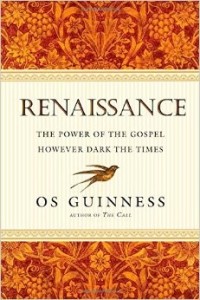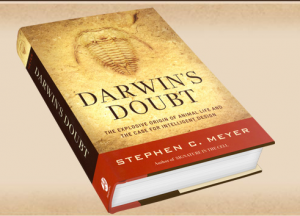By Brian Nixon
Albuquerque, New Mexico (ANS – Feb. 8, 2015) —I know I’m late with this list. Particularly since other Christian news services have long since released their top book picks. But as the saying goes, “better late than never.” As is my custom for ASSIST News, I’ve chosen books that are taken from works I’ve read this past year; there’s no committee or consensus. But as an editor, writer, and minister, the books I’ve chosen represent various publishers and differing voices within the larger church. I’ve tried to limit my list to books published in 2014. However, there are a couple of books that were released in 2013 that I didn’t have the privilege of reviewing until this past year. Here are 10 that will help you keep reading for a while.
 Renaissance: The Power of The Gospel However Dark The Times, Os Guinness (IVP Press, 2014). Os never ceases to amaze me. Throughout his long and storied career as an author and Christian statesman, Os’ unswerving quest for Biblical norms is noteworthy. This book is challenging, enlightening, and hope-filled; it’s a needed dose of reality for the Western church. Read it with care.
Renaissance: The Power of The Gospel However Dark The Times, Os Guinness (IVP Press, 2014). Os never ceases to amaze me. Throughout his long and storied career as an author and Christian statesman, Os’ unswerving quest for Biblical norms is noteworthy. This book is challenging, enlightening, and hope-filled; it’s a needed dose of reality for the Western church. Read it with care.- God Has Spoken, Gerald Bray (Crossway, 2014). As part of his on-going theological works, Bray has penned another winner. In God Has Spoken, Bray tackles historical theology with depth, balance, and Biblical insight. As the description of the book states, “In this groundbreaking resource, professor Gerald Bray traces the history of Christian theology from the early church to the modern era. Structured to parallel the order in which orthodoxy gradually matured in response to challenges from both inside and outside the church, this volume outlines how Christians have struggled to understand, confess, and worship the triune God through the centuries.”
- Darwin’s Doubt, Steven Myers (HarperOne, 2013). Though published in 2013, Myers’ Darwin’s Doubt made it to the New York Times best-seller list, keeping it alive and well into 2014. This is good news for a book addressing the topic of Darwinism. As a Cambridge educated scientist, Myers has tactfully and masterfully questioned the Darwinian orthodoxy found in many spheres of the biological and social sciences. Clocking in at over 500 pages, it is a dedicated read, but well worth it.
 This Day: New and Collected Poems, Wendell Berry (Counterpoint, 2014). Berry is a poet of great strength. As a farmer, writer, author, and Christian, Berry is well acquainted with the themes of life. In this newest release, Berry continues his thoughtful poems, helping all people see God’s invisible hand working in our world, inspiring us to listen with care and consideration.
This Day: New and Collected Poems, Wendell Berry (Counterpoint, 2014). Berry is a poet of great strength. As a farmer, writer, author, and Christian, Berry is well acquainted with the themes of life. In this newest release, Berry continues his thoughtful poems, helping all people see God’s invisible hand working in our world, inspiring us to listen with care and consideration.- Music at Midnight: The Life and Poetry of George Herbert, John Drury (University of Chicago, 2014). Herbert (1593-1633) was a poet and pastor living in Elizabethan England. Hailing from a well-to-do family, Herbert went on to excel in both poetry and ministry, living a quiet life before the face of God. His short time on earth is a testimony of a life dedicated to God’s ongoing work within a particular life—as manifest through Herbert’s pastoral and artistic roles.
- Bach: Music in the Castle of Heaven, John Eliot Gardiner (Knopf, 2013). Though published in 2013, it took me a few months to get to the 600 plus page book. Written by the notable conductor, John Eliot Gardiner, Bach: Music in the Castle of Heaven, is a wonderful mix of biography, musical studies, and personal interest (Gardiner is one of the leading Bach interpreters). For it’s length, it is a clear and enjoyable read. If you love music, and Bach specifically, you’ll relish this book.
- God in the Whirlwind: How the Holy-love of God Reorients Our World, David Wells (Crossway, 2014). In a short review of the book, I wrote, “David F. Wells is a senior research professor at Gordon-Conwell Theological Seminary in South Hamilton, Massachusetts. As an author or co-author of over 15 books, his main area of research and study is related to the Evangelical church, focusing on theology, culture, and the fading influence of the church within Western culture. As the principle author of the Cambridge Declaration (a statement of faith written in 1996 to offset the declining theological and Biblical roots within the evangelical church), Wells is an insightful critic of the church and its diminishing Biblical and theological foundations. Yet in his newest book, God In A Whirlwind, Wells’ is not so much analyzing or critiquing the Western church (there is some of that) as he is providing a solution to our malady: God’s holy-love. In nine chapters Wells offers an elucidation to the whirlwind of life, boiling down to this: Christians need to earnestly learn from God (his attributes, signified in holiness and love)-through His word, taking what we’ve learned and apply it to our lives and the world. Nothing else will do[2].”
- Surprised By Scripture, N.T Wright (Harper Collins, 2014). As a kind of “greatest hits” of some of his notable themes, Wright does less to provide a proper hermeneutic of scripture (the art of Biblical interpretation) than he does offer central themes found within the Bible related to various subjects (science and the Bible, women and the Church, heaven, and the like). Like a familiar tune, there are moments of interesting harmonies, mixed with beautiful, Bible-soaked melodies. Though some may disagree with Wright’s conclusions regarding some subjects, one has to admit he’s a fine writer; his pen seldom runs dry.
- How God Became Jesus, Michael Bird, editor (Zondervan, 2014). Bart Ehrman is quite the writer, authoring books that both tantalize Evangelical senses and call into question Biblical authority. And he’s made it to the New York best selling list a few times—so his works are popular and widely read, convincing many people that the Bible is full of mistakes, mishaps, written by misleading authors. Luckily, there are great scholars to help bring balance to many of Ehrman’s assertions and arguments. In How God Became Jesus, several of these scholars rebuttal Ehrman’s book, How Jesus Became God. In 10 fascinating (and at times, funny) chapters, the authors take Ehrman head on—showing when Ehrman’s arguments are correct, and correcting Ehrman’s scholarship when his arguments are conflated.
- Can We Still Believe The Bible?, Craig Blomberg (Brazos Press, 2014). Let me say that I don’t agree with everything Blomberg has to say in this book. What I do appreciate is his honesty and approach in addressing a sensitive topic within the Evangelical church: Biblical authority. Blomberg demonstrates that the Bible carries the authority it deserves, but Believers may have questions on how to approach the Bible and the ongoing dialogue of inspiration, inerrancy, and inclusivity.
Photo captions:
1) Os Guiness
2) Book cover
3) N.T. Wright







